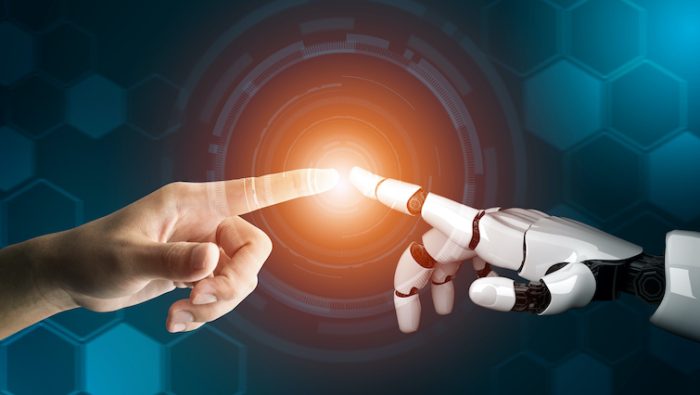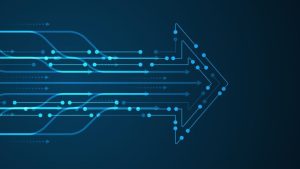What Does AI Mean for Entry-Level Jobs?
 Publié le 10 October 2025
Publié le 10 October 2025
The job market for university graduates is facing unprecedented competition from an unexpected rival: artificial intelligence. Recruiters, business consultants, and university representatives are increasingly reporting that AI tools are replacing the first rung of the employment ladder, making it dramatically harder for graduates to enter the workforce. This shift has led to many recent graduates struggling to find jobs as AI systems perform work traditionally assigned to interns and graduate students.
Dario Amodei, CEO of AI company Anthropic, has issued a stark warning that has sent shockwaves through the employment sector. His prediction suggests that AI could eliminate half of all entry-level white-collar jobs within the next five years, potentially raising overall unemployment by 10-20%.
This article delves into these alarming forecasts, examining the types of entry-level jobs most affected, exploring whether AI is truly replacing or merely reshaping these roles, identifying the new opportunities emerging, and outlining the essential skills young professionals will need to thrive in this rapidly evolving landscape.
AI’s Disruption of Entry-Level Roles
The scale of AI’s potential impact on entry-level employment is staggering. The World Economic Forum has found that 40% of employers expect to reduce their workforce where AI can automate tasks.
Entry-level positions, which often involve routine, low-risk tasks, are particularly susceptible to automation by generative AI. This vulnerability extends to work typically assigned to interns and graduates, fundamentally altering the traditional pathway into professional careers. Specific fields already experiencing impact or facing high vulnerability include marketing, customer service, data entry, and analysis.
The technology sector exemplifies this disruption most clearly. The entry-level software developer role is being systematically eroded due to the potentially erroneous belief that one developer proficient with AI tools can be 10 times more productive than a team without the tools.
Nvidia CEO Jensen Huang has suggested that AI could replace coders by making programming more efficient and automatable, further validating these concerns.
Roles with high exposure to automation, including data engineers, database managers, and IT specialists, face similar threats. AI systems can now replace work traditionally performed by legal assistants, like compiling precedents, or computer programmers writing basic code. Tasks like QA testing, ticket triage, and basic scripting are being absorbed by automation, contributing to the vanishing of entry-level tech positions.
The evidence of this impact on hiring and employment is mounting rapidly. The unemployment rate for recent graduates has jumped to 5.8% in the first three months of 2025, marking one of the most challenging job markets in years. In Canada, the situation is quite dire. The unemployment rate for returning students was 20.1% in May 2025, up 3.2 points from May 2024, with the unemployment rate among postsecondary graduates under 25 reaching 11.2% in the first quarter of 2025, the worst start to a year since at least 2005, excluding the pandemic.
Corporate strategies increasingly reflect this shift toward AI-first approaches. Companies like Shopify now require teams to prove AI can’t do a particular job before hiring a person. Duolingo has adopted an ‘AI-first’ strategy, with its CEO stating that AI would eventually replace contract workers. Salesforce has acknowledged that AI contributed to a slowdown in hiring while reassigning customer service workers. Business Insider laid off 21% of its staff while committing to an ‘AI-first’ strategy, aiming for 100% employee use of Enterprise ChatGPT.
Perhaps most concerning is what experts are calling the ‘broken career ladder’. AI’s rise threatens to eliminate the crucial ‘training ground’ workers need for career progression. Recent graduates may not acquire the necessary skills to advance, potentially creating a ‘hollowing out’ of early-career positions and thinning the pipeline for future senior-level talent.
The traditional career ladder is essentially being dismantled.
Is AI Creating New Jobs?
Despite these dire predictions, many experts and survey findings suggest that AI is transforming work rather than completely eliminating entry-level roles. Many claim AI is an ’empowering tool’ that boosts productivity and frees up employees, including new hires, to focus on more strategic, creative, and people-focused work. They claim the most likely outcome is that companies will reformulate these jobs into something new rather than eliminate them entirely.
Despite evidence indicating a decline in entry-level jobs, some believe it’s not the case. A survey of 2,000 professionals found that only 8.7% believe AI has ‘completely replaced’ entry-level responsibilities, while a significant 50.9% believe it has done so ‘to some extent’
There is some support for this. A Statistics Canada report noted that nearly 70% of businesses planning to use AI didn’t expect to change their employment levels, and only 9.4% anticipated a decrease.
Certain job categories remain largely immune to AI automation. Manual labor, trades, and other hands-on jobs are expected to remain largely untouched by AI. Roles that are ‘very human-intensive,’ requiring qualities like critical thinking and empathy, such as early-education teachers, home health aides, and therapists, are considered more robust against AI replacement. Professional roles requiring human decision-making, like medical doctors, continue to be irreplaceable by AI systems.
Other Factors to Consider
Some current job market challenges for young workers are also attributed to broader economic conditions and uncertainty rather than solely AI. Canada’s youngest workers are being hit by a perfect storm of economic conditions: an inflation crisis, a surge in population, and a country teetering closer to recession as the U.S. trade war wreaks uncertainty on the economy.
There’s also the potential that certain roles currently being replaced by AI may return to preferring human workers. For example, Klarna initially sought to replace customer service agents with AI chatbots, but they later rehired humans due to declining service quality, demonstrating that AI solutions aren’t always superior to human workers.
Furthermore, a National Bureau of Economic Research study of workers in AI-exposed industries found that the technology had next to no impact on earnings or hours worked. If AI isn’t having a noticeable impact on productivity, why not just hire humans?
Charting the Course: New Roles and Essential Skills
If job seekers are willing to devote themselves to using AI, there could potentially be roles out there for them. The demand for AI-literate professionals might be creating new pathways into the workforce. The idea is that as automation expands, new roles focused on developing and managing automated systems continue to emerge.
Young professionals entering this transformed job market need to develop specific skills to remain competitive. AI fluency has become essential, requiring mastery of platforms like ChatGPT, Claude, and GitHub Copilot. This includes learning how to prompt effectively, troubleshoot AI output, and integrate AI into workflows. Showing ‘AI-native’ skills, such as ‘AI-assisted development’ or ‘prompt engineering experience’, on resumes has become crucial for standing out.
New roles increasingly demand higher-order thinking, adaptability, and cross-functional collaboration from day one. Managers now prioritize soft skills like problem-solving and analysis over sheer effort, making critical thinking, adaptability, and collaboration essential skills.
Human-centric attributes like empathy, judgment, and trust remain areas where AI lags, creating opportunities for young professionals to pivot toward roles such as UX design, AI safety and ethics, change management, and client support and implementation.
But the question remains over whether there are enough new opportunities to replace the ones made redundant by AI, and if devoting your life to running AI machines is a fulfilling, engaging career.
Navigating the Future of Entry-level Work
For graduates entering this transformed landscape, success requires a multifaceted approach. Becoming AI proficient is no longer optional but essential, requiring active learning and mastery of AI tools while demonstrating this proficiency through ‘AI-native’ skills in applications and practice.
Focusing on unique human skills provides a competitive advantage that AI cannot replicate. Developing and highlighting soft skills like adaptability, communication, and critical thinking, while exploring roles that emphasize human judgment and empathy, creates sustainable career paths.
For employers, the path forward involves redefining rather than eliminating entry-level opportunities. Instead of wholesale elimination, companies should modernize and redesign entry-level roles to offer meaningful learning, strategic exposure, and hands-on experience with digital tools, including AI.
Thoughtful AI integration, implemented with clear goals, quality content, and continued human oversight, ensures that technology augments employee capabilities rather than simply replacing them. Investing in talent development by recognizing the importance of nurturing early talent through adapted training programs and career pathways remains crucial, as the future workforce depends on these foundational experiences.
Conclusion
The future of work isn’t just becoming ‘differently human’, it’s becoming more precarious for those trying to establish their careers. Success will require not just adaptation and new skills, but also realistic expectations about a job market that has fundamentally shifted against entry-level workers. Until concrete evidence emerges that AI is genuinely creating accessible entry-level opportunities at scale, rather than just theoretical higher-skilled positions, graduates must navigate a landscape where traditional career paths have been disrupted without adequate replacements.







